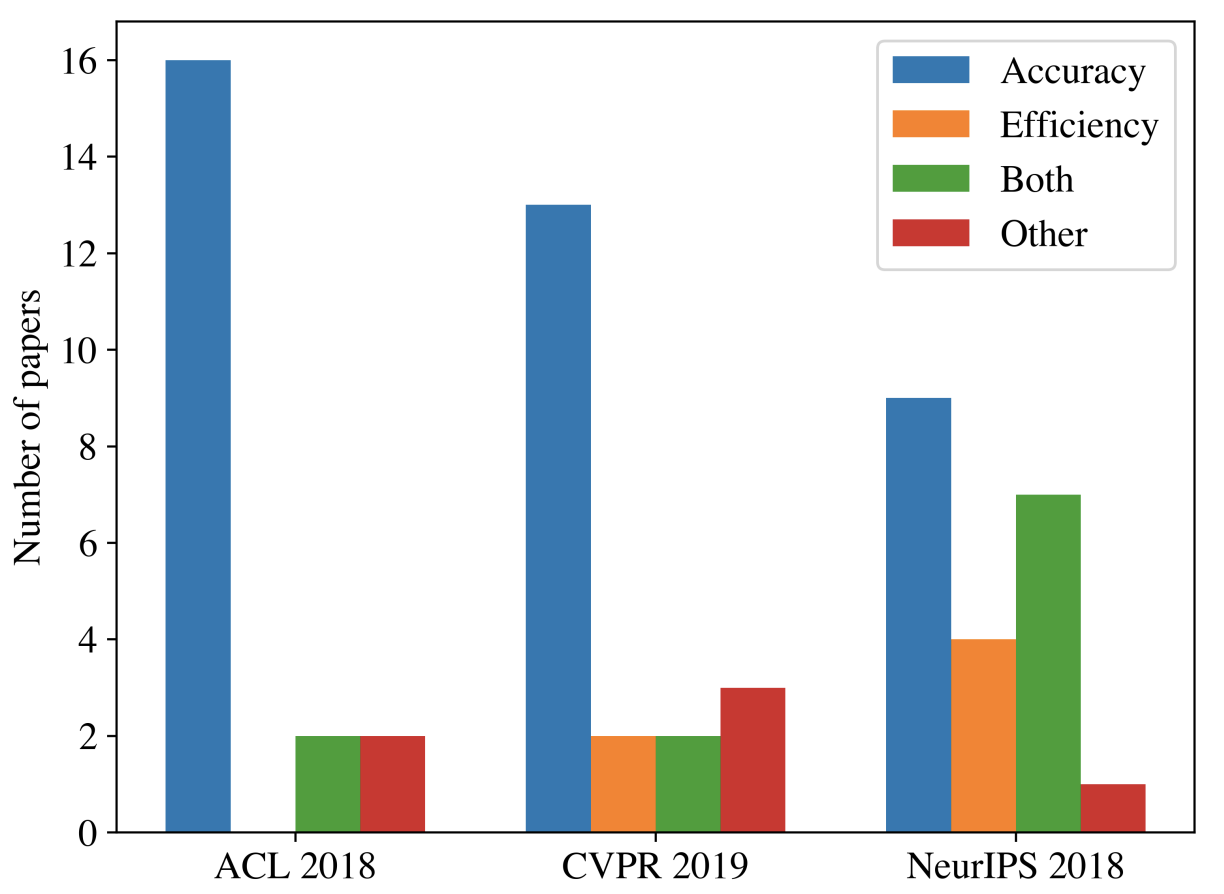 A greener approach
to AI A greener approach
to AI
AI2 is advocating for
encouraging more
environmentally-friendly and
inclusive AI research,
instead of racing towards
ever-smaller incremental
benchmark improvements obtained
through utilizing massive
amounts of computational
resources. We propose adopting
computational efficiency as a
common evaluation metric in AI
research papers, and the
establishment of a baseline for
efficiency that others can
improve on.
|
|
Uncovering bias in clinical
studies
In a recent analysis of
biomedical publications, AI2
researchers found that sex
bias against female participants
in clinical studies persists
despite the legal and policy
initiatives in place to increase
female representation. This
disparity has important
implications for the way medical
treatments are understood and
dispensed to patients.
C
heck out the study, and read more about the
findings in this recent coverage
by Quartz:
25 years of women being
underrepresented in medical
research, in charts
|
|
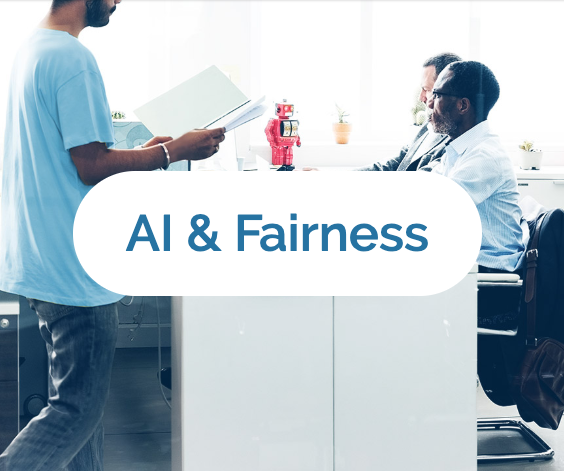 AI & Fairness AI & Fairness
We are building on AI2's
expertise in NLP, computer
vision, and engineering to
deliver a tangible positive
impact on fairness.
Over the next few months,
we'll be working with
renowned researchers and
experts to continue shaping
this project.
Learn more and
check out our open
positions
for this new initiative: allenai.org/fairness
|
|
Mark Neumann, Daniel
King, Iz Beltagy, Waleed
Ammar • ACL 2019
Processing biomedical and
clinical text is a critically
important application area of
natural language processing, for
which there are few robust,
practical, publicly available
models. This paper describes
scispaCy, a new tool for
practical biomedical/scientific
text processing, which heavily
leverages the spaCy library.
|
|
Ben Bogin, Jonathan
Berant, Matt
Gardner • ACL 2019
Research on parsing language to
SQL has largely ignored the
structure of the database (DB)
schema, either because the DB
was very simple, or because it
was observed at both training
and test time. In SPIDER, a
recently-released text-to-SQL
dataset, new and complex DBs are
given at test time, and so the
structure of the DB schema can
inform the predicted SQL query.
|
|
Alon Talmor, Jonathan
Berant • ACL 2019
A large number of reading
comprehension (RC) datasets have
been created recently, but
little analysis has been done on
whether they generalize to one
another, and the extent to which
existing datasets can be
leveraged for improving
performance on new ones. In this
paper, we propose MultiQA, a
BERT-based model, trained on
multiple RC datasets, which
leads to state-of-the-art
performance on five RC datasets.
We share our infrastructure for
the benefit of the research
community.
|
|
 Keisuke Sakaguchi,
Ronan Le Bras, Chandra
Bhagavatula, Yejin
Choi
Keisuke Sakaguchi,
Ronan Le Bras, Chandra
Bhagavatula, Yejin
Choi
The Winograd Schema Challenge
(WSC) was proposed in 2011 as an
alternative to the Turing Test.
This paper introduces
WinoGrande, a new collection of
WSC problems that are
constructed to be robust against
statistical biases present in
the original WSC. While the
original WSC dataset provided
only 273 instances, WINOGRANDE
includes 43,985 instances.
WinoGrande allows us to achieve
new state-of-the-art results on
the original WSC and related
datasets.
Check out the
new AI2 Leaderboard
for this dataset and try
WinoGrande yourself!
|
|
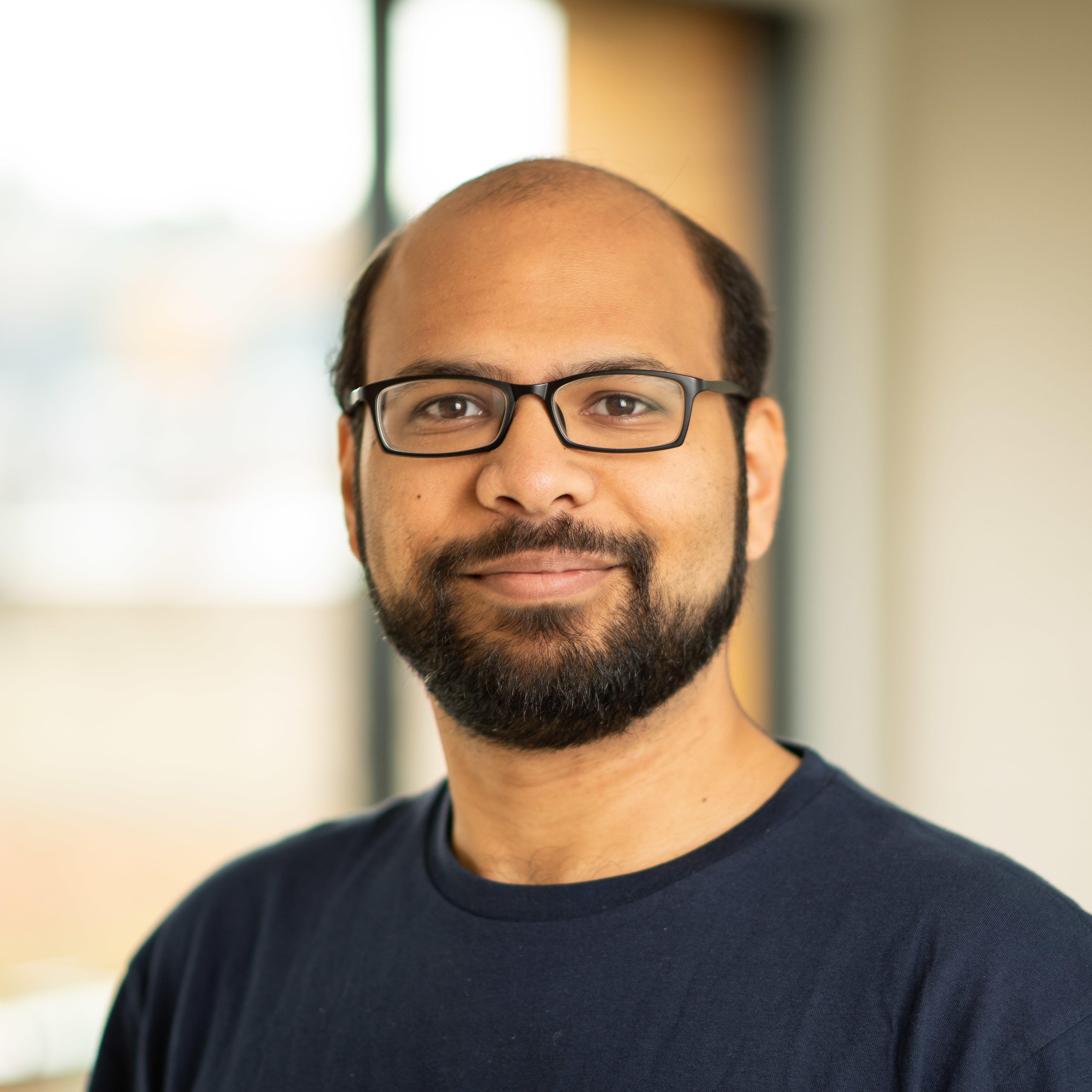
Check out our
interview with Chandra
Bhagavatula, a Senior Research Scientist
on the Mosaic team — learn about
his work driving our Common
Sense AI initiative forward, and
his advice for aspiring
researchers.
|
|
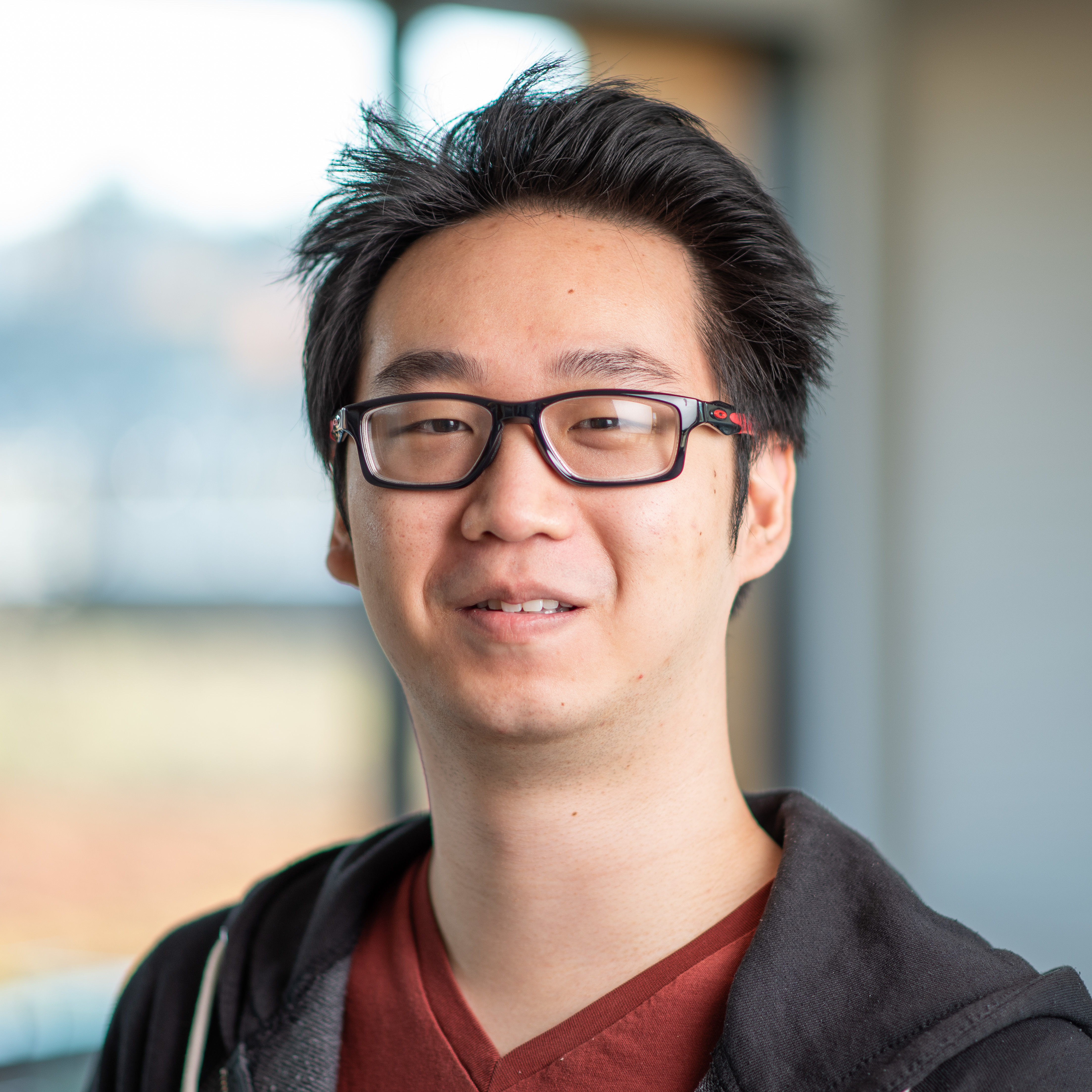
AI2-THOR 2.0 is here! Winson Han
discusses the way we are
bridging the reality gap in
simulated environments using
game design in our powerful new
version of this computer vision
research platform: Introducing AI2-THOR 2.0
|
|

AI is built in no small part on
the backs of crowdworkers. AI2
has issued a set of best
practices for crowdsourcing,
including ethical pricing,
transparency, privacy,
communication, and more. Read
more on the AI2 Blog: Crowdsourcing: Pricing
Ethics and Best Practices
|
|

Leading scientific publisher
Springer Nature has partnered with AI2's
Semantic Scholar
to provided expanded
content to 3.4 million academic
papers — find more relevant
research in the fields of
chemistry, earth sciences,
public health & more.
Learn more
.
|
|
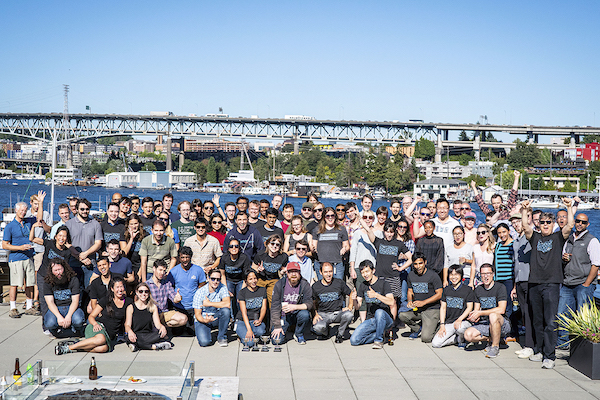
|
|
This July we held the annual AI2
Hackathon, a frenetic 2.5 days
of designing, building, and
demoing new AI-based prototypes,
analyses, and resources. After
some fantastic successes (and
hilarious failures), our teams
produced some great new ideas -
a few of which we'll be bringing
to life!
|
|
|
Were you
forwarded
this
newsletter
from a
friend or
colleague?
To stay up
to date
with research
and news
from AI2,
subscribe
here.
|
|
|
|
|